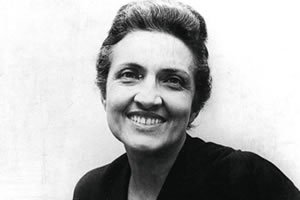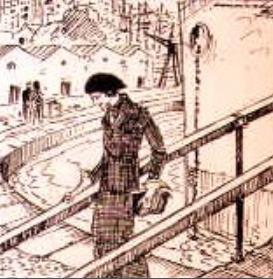Cecília Meireles facts for kids
Quick facts for kids
Cecília Meireles
|
|
|---|---|
 |
|
| Born |
Cecília Benevides de Carvalho Meireles
7 November 1901 |
| Died | 9 November 1964 (aged 63) Rio de Janeiro, Brazil
|
| Nationality | Brazilian |
| Known for | Poet, educator |
| Movement | Modernism |
Cecília Benevides de Carvalho Meireles (born November 7, 1901 – died November 9, 1964) was a famous Brazilian writer, poet, and teacher. She is known as one of the best female poets writing in the Portuguese language. She was an important figure in Brazilian Modernism.
Cecília traveled a lot in the 1940s. She visited countries like the United States, Mexico, and Argentina. In 1940, she gave talks at the University of Texas at Austin. She even wrote poems about her time there. As a journalist, she wrote articles called crônicas. These articles often focused on education and her travels. She visited Portugal, other parts of Europe, Israel, and India. In India, she received a special award called an honorary doctorate.
As a poet, her style was often described as neosymbolist. She wrote about themes like time passing and thinking deeply about life. She also worked hard to improve education. She believed in building libraries for children.
Contents
About Cecília Meireles
Early Life and First Poems
Cecília Meireles became an orphan at age three. Her grandmother raised her. She started her writing career early. At 18, she published her first book of poems, Espectros (1919). This book had seventeen sonnets. These poems were described as light and dream-like.
Even though she later wrote some poems in free verse, she still liked traditional poetry styles. Between 1919 and 1927, she wrote for magazines like Árvore Nova and Terra do Sol. She was also important in the magazine Festa. The Festa poets liked traditional writing. They also focused on ideas that were important to everyone.
Poetic Journey and Travels
After not publishing a poetry book for 14 years, Cecília released Viagem (Voyage) in 1939. This book showed her growth as a poet. It won the annual Poetry Prize from the Brazilian Academy of Letters. The title Viagem means a journey of the spirit. It shows how life and poetry came together for her.
In the 1940s, Cecília Meireles traveled widely. The sea became a very important image in her poems. Her book Mar Absoluto (1942) was full of sea poetry. In 1953, she took part in a meeting about the work of Mahatma Gandhi. India had a big influence on her writing. She even taught herself Hindi and Sanskrit.
Her book Romanceiro da Inconfidência (1953) was written like old Iberian ballads. It tells the story of Brazil's first attempt to gain independence in 1789. This story happened in Minas Gerais. The book focuses on the leader of the uprising, Joaquim José da Silva Xavier. Another book, Giroflê, Giroflá (1956), was inspired by her trips to India and Italy.
Journalism and Translations
Cecília Meireles wrote a lot for Brazilian newspapers and magazines. For some time, she was the education editor for Rio's Diario de Noticías. She also translated many famous writers into Portuguese. These writers included Federico García Lorca, Henrik Ibsen, Rabindranath Tagore, and Virginia Woolf.
Besides poetry, she also wrote plays and books for children. Cecília Meireles passed away from cancer in Rio de Janeiro on November 9, 1964. This was just two days after her 63rd birthday. Throughout her life, many literary movements influenced her. However, her poetry always felt very personal and unique.
In October 2009, she was one of the main authors featured at the First Congress of Brazilian Women Writers in New York.
See also
 In Spanish: Cecília Meireles para niños
In Spanish: Cecília Meireles para niños


